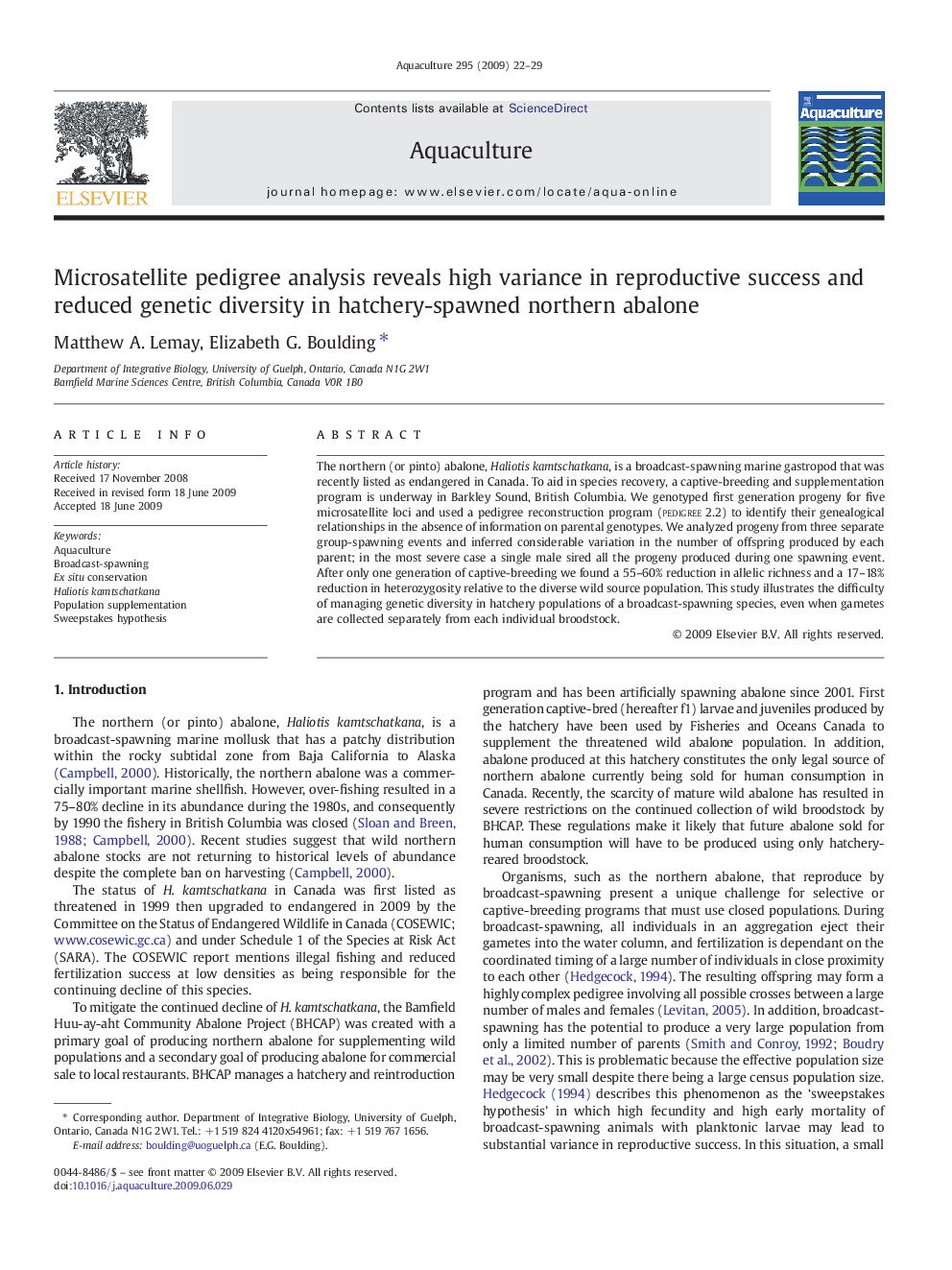| Article ID | Journal | Published Year | Pages | File Type |
|---|---|---|---|---|
| 2424072 | Aquaculture | 2009 | 8 Pages |
The northern (or pinto) abalone, Haliotis kamtschatkana, is a broadcast-spawning marine gastropod that was recently listed as endangered in Canada. To aid in species recovery, a captive-breeding and supplementation program is underway in Barkley Sound, British Columbia. We genotyped first generation progeny for five microsatellite loci and used a pedigree reconstruction program (Pedigree 2.2) to identify their genealogical relationships in the absence of information on parental genotypes. We analyzed progeny from three separate group-spawning events and inferred considerable variation in the number of offspring produced by each parent; in the most severe case a single male sired all the progeny produced during one spawning event. After only one generation of captive-breeding we found a 55–60% reduction in allelic richness and a 17–18% reduction in heterozygosity relative to the diverse wild source population. This study illustrates the difficulty of managing genetic diversity in hatchery populations of a broadcast-spawning species, even when gametes are collected separately from each individual broodstock.
